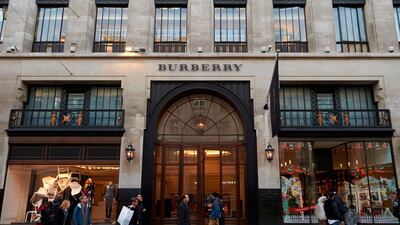In July, news broke that Burberry was destroying GBP28.6 million (Dh135.8million) worth of "unsaleable" old stock a year, leading to a huge backlash.
Now, via a statement released on its website, the British fashion label has declared that it will put an end to this practice. Instead, it will “reuse, repair, donate or recycle unsaleable products”, saying that this will build on a new strategy “as part of our five-year responsibility agenda ... which is helping tackle the causes of waste”.
This is a step in the right direction when it comes to ending the controversial practice of high-end fashion houses dumping old stock in landfill or sending it to an incinerator to prevent it from ending up in discount stores.
In addition, the house has also promised that it will go fur free, starting with the debut collection of its new creative head, Riccardo Tisci, which will be unveiled on September 17 during London Fashion Week.
This move will bring Burberry in line with other high-profile fur-free brands, such as Versace, Gucci and Giorgio Armani.
_________________________
Read more:
Making sense of the fashion merry-go-round: who's gone where and what to expect
Of trench coats and technology: Christopher Bailey to take Burberry to the forefront of fashion
__________________________

